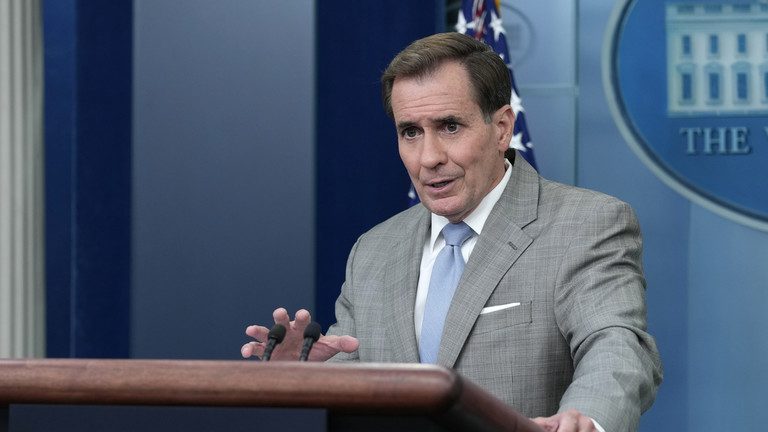Africa
White House won’t rule out backing an invasion of Niger

Currently, West African politicians are debating whether to begin a campaign of regime change in Niamey.
White House National Security Council spokesman John Kirby told reporters on Wednesday that the US will not commit to supporting or preventing a future invasion of Niger by its neighbours in West Africa.
The US wants captured Nigerien President Mohamed Bazoum returned from captivity and restored to power, Kirby said during a State Department briefing. Last month, senior military figures toppled Bazoum’s pro-Western government.
Kirby was evasive when asked if Washington would back a military intervention by the ECOWAS, an organisation led by Nigeria, to reinstate Bazoum’s administration.
He declared, “I’m not going to speculate on involvement from ECOWAS or anyone else in any way. We continue to hold the view that there is still time and room for diplomacy to lead to a settlement that respects the desire of the Nigerien people.
An ultimatum to release Bazoum and cede control was disregarded by the new military government in Niger, prompting ECOWAS to create a standby force last week. While talks between the coup leaders and the regional group continue, ECOWAS officials will gather in Ghana this week to decide whether or not to use military force. A decision is anticipated on Friday.
Foreign backing for an ECOWAS invasion is still missing, though. The former colonial ruler of Niger, France, has vowed to help “the efforts of ECOWAS to defeat this coup attempt,” but has not said whether it backs a diplomatic, military, or combined approach. Following a meeting on Wednesday, the African Union’s 55 members reportedly rejected to support military action, according to French media sources.
An ECOWAS intervention is unlikely to take place without support from the African Union, policy experts told Le Monde on Wednesday.
Around 1,000 American and 1,500 French troops are now stationed in Niger, where France and the US retain military sites. The coup leaders have stopped military and trade deals with France because they are convinced that this Western presence must end. In retaliation, Paris placed sanctions on Niamey, and Washington stopped providing international aid.
